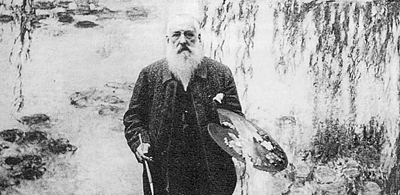Vultures Roost at the Getty
I have praised the Getty Museum as one of the greatest in America, and I’ve applauded the venerable institution for its policy of free admission to all exhibits – but no organization or individual is beyond reproach. The Getty has been wracked with controversy lately due to Barry Munitz, the power drunk gadfly president of the Getty Trust. On August 21st, 2005, the Los Angeles Times published an editorial titled A matter of trust. In that column the paper exclaimed:
“Reports in The Times about the perks and power conveyed on Barry Munitz, the trust’s president and chief executive, have created the perception that Munitz and the board of trustees view the Getty as their plaything.”
While I agree with the reformist minded tone of the editorial – we are dealing with much more than just perceptions. Munitz’s annual salary is well over a million dollars, yet he billed the Getty $35 thousand-dollars for personal expenses while traveling through Italy – including renting a villa in Tuscany for $15,000.
Munitz’s career at the Getty has been one big spending spree at the expense of the institution and the taxpayer. His Getty Trustee cronies gave him a $72 thousand-dollar Porsche, and he’s been enjoying many other benefits large and small – far too many to list here. I encourage everyone to read the words of Edward Goldman, art critic for Los Angeles radio station KCRW (89.9 FM), who let fly a zinger that nailed Munitz to the wall – “Mr. Munitz and his brethren should not be allowed to run their organizations as their own personal fiefdoms.” The RAND Corporation just issued the results of a study it conducted on the health of the visual arts world – and the report is rather dreary. Titled The Visual Arts: Meeting the Challenges of a New Era, the report states:
“Although a few ‘superstars’ at the top of the artists’ hierarchy sell their work for hundreds of thousands and occasionally millions of dollars, the vast majority of visual artists often struggle to make a living from the sale of their work and typically earn a substantial portion of their income from non-arts employment. (…. ) The value of an artist’s work is determined not, as was traditionally the case, by the consensus of experts, but increasingly by a small number of affluent buyers who are drawn to purchase works for their potential investment value.”
Such is the state of visual arts today. In his article titled My Thirty Years of Exile as a German Artist, Austrian-born expressionist painter Oscar Kokoshka described his life in 1910 Germany:
“I would damn well have liked to learn the secret of how to remain a free artist without starving; there were so many winter days when I pressed my nose to the frozen window panes of the Romanishes Café, where the academicians were holding debates about art. I knew more about painting than they did… but I never had any money.”
Kokoshka’s words are like a litany told by artists throughout the ages. How many times have artists been forced to make the decision of buying art supplies or purchasing food? As the RAND report has made clear, that is the reality suffered by most of today’s artists, and kingpins like Barry Munitz are the pigs who feed at the trough. I have little tolerance for his ilk, and he should be unceremoniously and brusquely shown the door. If by chance justice prevails at the Getty and an opening for president of the Getty Trust is made available – I would like to submit my name for consideration. I won’t ask for a million dollar plus annual salary and a $72 thousand-dollar Porsche – room and board and a ten speed bicycle will suffice.
— // —
UPDATE 2006: Munitz resigned his $1 million dollar a year position in February 2006. While admitting no wrongdoing, he agreed to repay the Getty $250,000 in order to cover “disputed items” with the museum. He also agreed to give up his severance pay and benefits in excess of $2 million. In Oct. 2006, the California attorney general’s office concluded that Munitz mishandled and squandered Getty foundation funds on perks, gifts, and lavish overseas vacations. However, state officials announced they would not seek charges or penalties against Munitz.
UPDATE Feb. 2014: Today Barry Munitz sits on the Broad Foundation Board of Governors, which has assets of $2.6 billion.
Part of the controversy surrounding Munitz as Chief Executive of the Getty had to do with his selling expensive Brentwood acreage owned by the Getty Trust to billionaire Eli Broad, for $700,000 less than its market value.
As of 2/3/2014, the Getty Trust has still not contacted me to offer a room and a bicycle.




